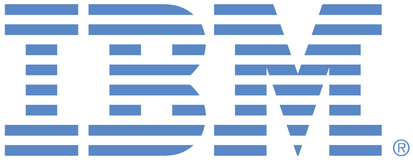
This portal is to open public enhancement requests against products and services offered by the IBM Data Platform organization. To view all of your ideas submitted to IBM, create and manage groups of Ideas, or create an idea explicitly set to be either visible by all (public) or visible only to you and IBM (private), use the IBM Unified Ideas Portal (https://ideas.ibm.com).
Shape the future of IBM!
We invite you to shape the future of IBM, including product roadmaps, by submitting ideas that matter to you the most. Here's how it works:
Search existing ideas
Start by searching and reviewing ideas and requests to enhance a product or service. Take a look at ideas others have posted, and add a comment, vote, or subscribe to updates on them if they matter to you. If you can't find what you are looking for,
Post your ideas
Post ideas and requests to enhance a product or service. Take a look at ideas others have posted and upvote them if they matter to you,
Post an idea
Upvote ideas that matter most to you
Get feedback from the IBM team to refine your idea
Specific links you will want to bookmark for future use
Welcome to the IBM Ideas Portal (https://www.ibm.com/ideas) - Use this site to find out additional information and details about the IBM Ideas process and statuses.
IBM Unified Ideas Portal (https://ideas.ibm.com) - Use this site to view all of your ideas, create new ideas for any IBM product, or search for ideas across all of IBM.
ideasibm@us.ibm.com - Use this email to suggest enhancements to the Ideas process or request help from IBM for submitting your Ideas.
IBM Employees should enter Ideas at https://ideas.ibm.com

MDS does not fully meet our requirement as I have indicated that memory usage for each tasks are various. If we set slots based on memory, the result is either memory waste or memory exhaust. We would like to control at host level such as: symphony stop dispatching tasks to the host over memory threshold
MDS does not fully meet our requirement as I have indicated that memory usage for each tasks are various. If we set slots based on memory, the result is either memory waste or memory exhaust. We would like to control at host level such as: symphony stop dispatching tasks to the host over memory threshold
This functionality has been delivered, as of yesterday, via the release of Platform Symphony 7.1.1.
More information about how this use case is resolved in Symphony 7.1.1 by MDS native integration with SOAM application.
The original problem reported in this RFE:
- Computing resources on compute hosts are occupied by standby service processes, and cannot be used as regular idle compute node for other workload;
- The proposal requested in the RFE is to prevent tasks being scheduled to such hosts when available resources go below certain threshold
Why this "problem" existings:
- Customer needs to use Standby Service to reduce the service up and down cost;
- The Standby Service processes actually occupy significant computing resources (CPU/Memory);
- In slot based resource plan, the assumption of Standby Service feature is the standby process does not occupy obvious resources, which is different with the use case reported;
- So while the resources are occupied by standby service process, slot scheduler still think the resources are available to continue schedule workload on it
How MDS resolve this problem:
- In MDS scheduler, the resource occupied by Standby Services are recognized and will not be included as free available resources to be scheduled. So this problem does not exist.
.This capability is supported in v7.1.1 using MDS and docker integration.
The major difficulty is the memory of SI process up and down dramatically. It is hard to predict and define the number of standby services
Thanks
Nancy
The new MDS support in v7.1.1 will resolve this issue. The standby service can be defined in terms of memory and CPU, and it will consume the memory and cpu defined when running in standby mode, thus not over subscribing the node.
Creating a new RFE based on Community RFE #80355 in product Platform Symphony.